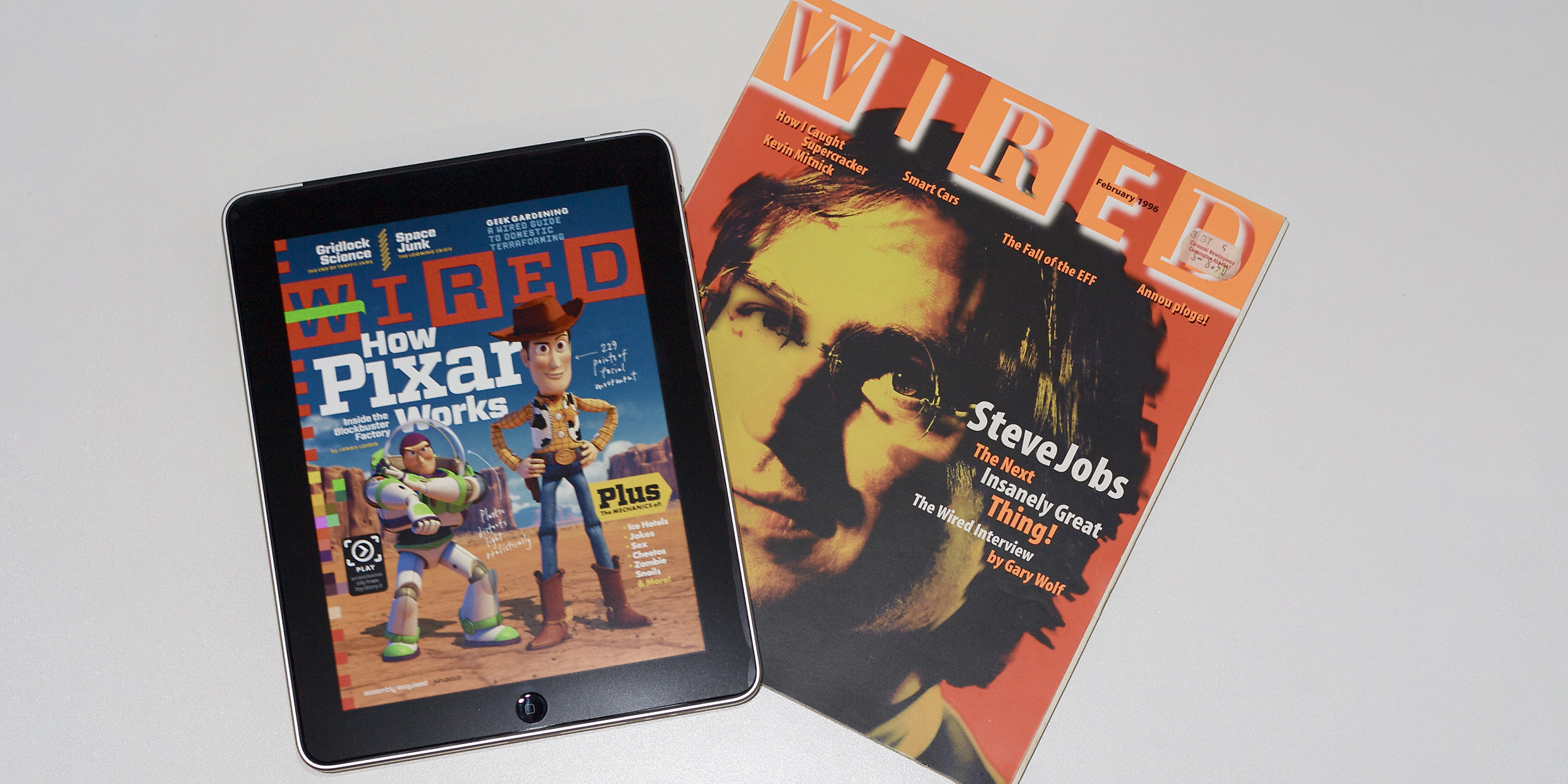Originally published 26 September 1994
Q. What’s Wired?
A. That’s easy. Wired is a hot new magazine for technotrendies. It is approaching its second birthday and circulation is booming.
Q. So what’s the fuss?
A. Well, the magazine has won an award for excellence from the American Society of Magazine Editors. Newsweek and the New York Times have taken note of its hip talk and flash graphics. Some say it is poised to become the Rolling Stone magazine of the computer generation.
Q. You mean…?
A. Yes. We have apparently crossed a great divide. A generation that defined itself by rock music is giving way to a generation that defines itself by digital electronics. The Nintendo kids have grown up. They are moshing on the Internet. The spirit of Woodstock has succumbed to America Online.
Q. Is it worth a look? The magazine, I mean.
A. Uh, that’s hard to answer. I can’t make heads or tails of it myself. I can’t even tell the features from the advertisements. It’s all an impenetrable hyper-collage of “Bam!” type fonts and Day-Glo colors.
Q. Sounds rad. Who reads it?
A. Well, that’s the thing. Wired’s average reader is 33, male, makes $81,000 a year and has 12 megabytes of RAM in his personal computer. I suppose I’m too old, underpaid, and chip-deficient.
Q. But I thought you were into this computer stuff?
A. I thought so too. Hey, I was there when you programmed computers by toggling in ones and zeros with switches on the front of the box. I remember when punch cards were high tech. I was the first guy on my block to own a Mac, the first to own a PowerBook. But Wired might as well be written in a foreign language. The stories sound vaguely like they mean something, but…
Q. For instance?
A. Take this bit of product gush from a recent issue: “All this direct off 20 or so gigabytes of hard disk connected to 486-based servers. And it even disk mirrors and does redundancy. Pretty cool.”
Q. Do you sometimes feel the world is passing you by?
A. I’ll say! It’s like there’s a whole new reality out there, a virtual world that exists purely electronically. A sort of parallel universe, accessed through the net.
Q. So how does one get wired?
A. Damned if I know. I think you had to be born into it. Raised on electronic baby food. Plugged in from the start. When I was a kid we played sandlot ball, walked in the woods, fooled around with Crayolas and construction paper. The folks who read Wired had joystick childhoods and on-line adolescences. Natal nerds turned yuppie cyberfreaks.
Q. Apparently they’re doing OK for themselves?
A. It would seem so. The consumer-products pages of Wired detail stuff that makes the Sharper Image catalog look positively downscale. Backpack cellular-phone modems that let you stay on the net no matter where you are. CyberMaxx headmount video displays. Lycra bodysuits with built-in sensors for virtual-reality travel. Personal submarines…
Q. Personal submarines? How do you stay on the net below the surface?
A. Beats me. “We’re living in a period where the future is malleable,” says Wired’s editor, Louis Rossetto, in a New York Times interview. “Computers and networks are tools that will create better times.”
Q. Sounds like the old gospel of consumerism trotted out in technospeak?
A. Too easy. These guys see the future and it is them. They may be right.
Q. What do you mean?
A. Ready or not, for better or for worse, the world is getting wired. My generation created computers. The Wired generation is creating a computer culture. Digitized. Networked. Obsessed with community but vaguely amoral. Replete with technotoys and digibabble. Uploading messages announcing “Here I am.” Downloading an apparently inexhaustible database of infoSpam.
Q. Hmmm. Could I be hearing the sour grapes of someone who would like to be wired but can’t find the plug?
A. Yeah, maybe you’re right. Cancel my subscription. I think I will go for a walk in the woods.
In addition to its digital formats, Wired is, perhaps paradoxically, still publishing a print magazine 25 years after this essay was first published. ‑Ed.



